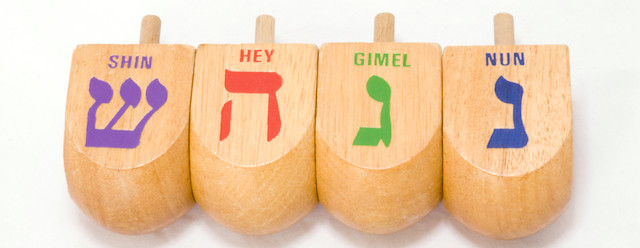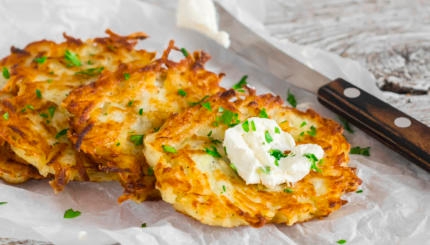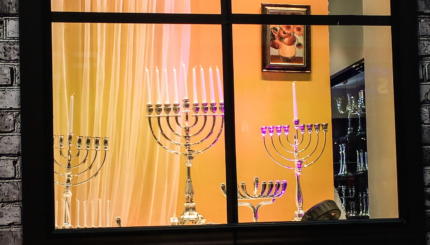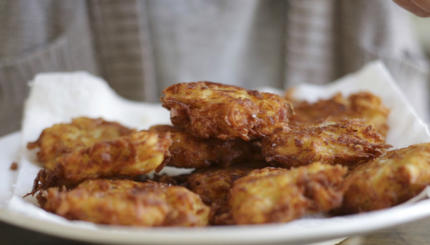The Hebrew word for dreidel is sevivon, which, as in Yiddish, means “to turn around.” Dreidels have four Hebrew letters on them, and they stand for the saying, Nes gadol haya sham, meaning A great miracle occurred there. In Israel, instead of the fourth letter shin, there is a peh, which means the saying is Nes gadol haya po — A great miracle occurred here.
Playing with the dreidel is a traditional Hanukkah game played in Jewish homes all over the world, and rules may vary. Here’s how to play the basic dreidel game:
1. Any number of people can take part.
2. Each player begins the game with an equal number of game pieces (about 10-15) such as pennies, nuts, chocolate chips, raisins, matchsticks, etc.
With your help, My Jewish Learning can provide endless opportunities for learning, connection and discovery.
3. At the beginning of each round, every participant puts one game piece into the center “pot.” In addition, every time the pot is empty or has only one game piece left, every player should put one in the pot.
4. Every time it’s your turn, spin the dreidel once. Depending on the side it lands on, you give or get game pieces from the pot. For those who don’t read Hebrew, some dreidels also feature a transliteration of each letter. If yours doesn’t, use the photo below as a cheat sheet:
a) Nun means “nisht” or “nothing.” The player does nothing.
b) Gimel means “gantz” or “everything.” The player gets everything in the pot.
c) Hey means “halb” or “half.” The player gets half of the pot. (If there is an odd number of pieces in the pot, the player takes half of the total plus one).
d) Shin (outside of Israel) means “shtel” or “put in.” Peh (in Israel) also means “put in.” The player adds a game piece to the pot.
5. If you find that you have no game pieces left, you are either “out” or may ask a fellow player for a “loan.”
6. When one person has won everything, that round of the game is over!
Reprinted with permission from A Different Light: The Hanukkah Book of Celebration, published by the Shalom Hartman Institute and Devora Publishing.
Explore Hanukkah’s history, global traditions, food and more with My Jewish Learning’s “All About Hanukkah” email series. Sign up to take a journey through Hanukkah and go deeper into the Festival of Lights.
dreidel
Pronounced: DRAY-dul, Origin: Yiddish, a spinning top, with four sides, each marked with a different Hebrew letter (nun, gimel, hay and shin), it is played with on Hanukkah.
Hanukkah
Pronounced: KHAH-nuh-kah, also ha-new-KAH, an eight-day festival commemorating the Maccabees' victory over the Greeks and subsequent rededication of the temple. Falls in the Hebrew month of Kislev, which usually corresponds with December.
tzedakah
Pronounced: tzuh-DAH-kuh, Origin: Hebrew, from the Hebrew root for justice, charitable giving.



